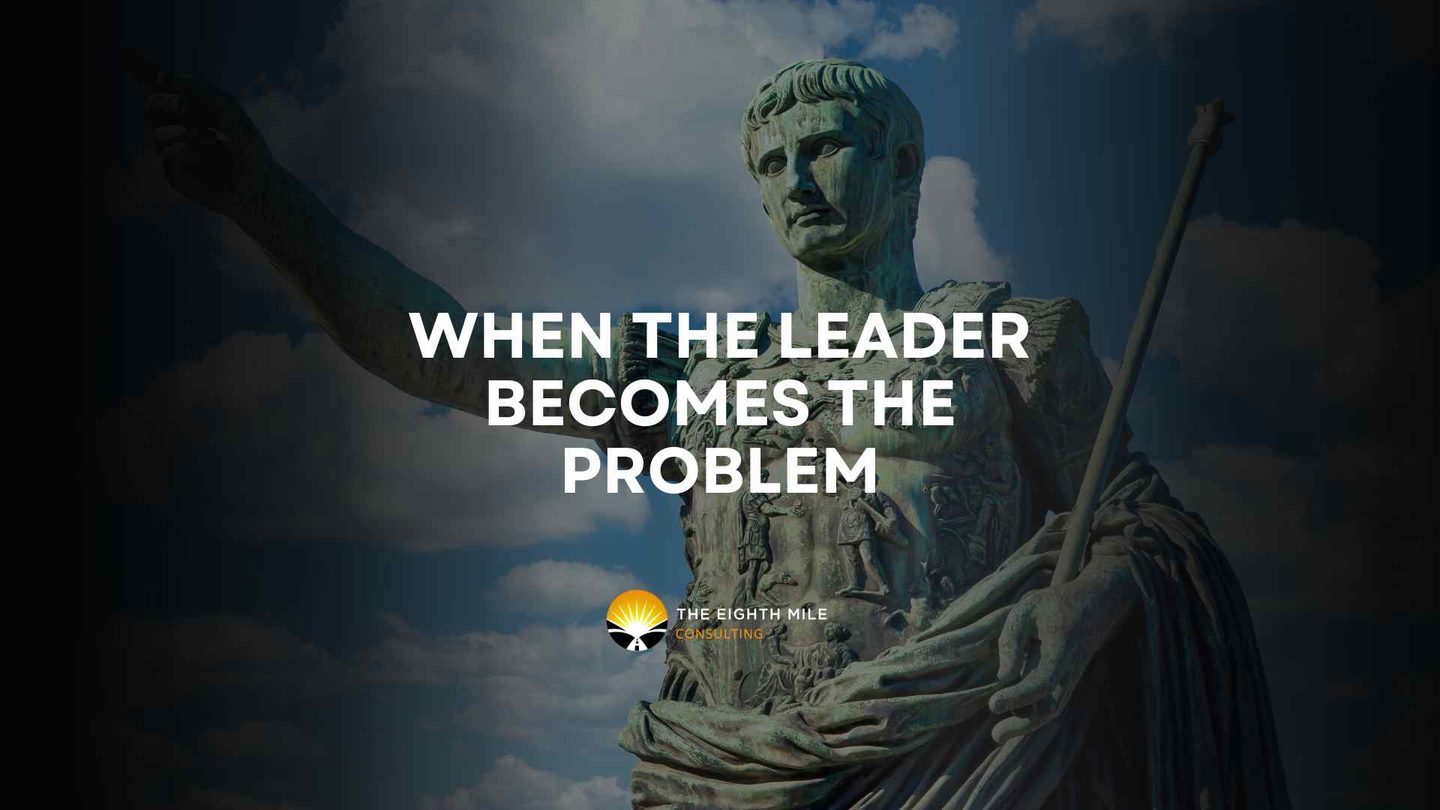
FREE DOWNLOAD
Hard-learned leadership lessons from both the military and the corporate world
Historical Leadership Lessons: The Line Between Discipline and Tyranny: What William Bligh Got Wrong
William Bligh possessed the technical acumen to survive what should have been fatal. His open-boat voyage after the Bounty mutiny remains one of the most precise and harrowing navigation feats in naval history.
Over 47 days, he led 18 men across more than 6,700 kilometres of open sea, relying on dead reckoning, basic provisions, and instinct honed through decades at sea.
This achievement, while extraordinary, is also misleading. It obscures the leadership failure that made such a journey necessary in the first place. The Bounty was not lost to enemy fire or natural disaster—it was surrendered from within, its command fractured by a captain who confused discipline with dominance.
Bligh's reputation among his superiors was that of a capable, even brilliant officer. Among his crews, however, he became known for something else: volatility. His leadership style was sharp-edged and increasingly personal. He issued corrections not as adjustments but as condemnations.
Reprimands were often public and theatrical, delivered with an edge that turned criticism into insult.
This dynamic did not build resilience among his men. It bred distance. And over time, the divide between Bligh’s command and his crew became too wide to reconcile.
Discipline or Humiliation? Where Bligh Crossed the Line
Naval command in the 18th century permitted a level of severity that modern standards would reject. Sailors were subjected to flogging, rationing, and harsh conditions as routine. Within this framework, discipline was expected. But even by these standards, Bligh’s conduct drew attention.
Accounts from the Bounty reveal a pattern of personalised abuse. His punishments extended beyond regulation; they became expressions of contempt. He publicly humiliated officers, reduced disagreements to accusations of disloyalty, and leveraged his authority in ways that isolated rather than united.
One of his most prominent targets was Fletcher Christian, a trusted officer who initially supported him. But as Bligh’s behaviour grew more erratic, Christian became increasingly withdrawn. The relationship deteriorated not due to a singular event but through accumulated slights, escalating tensions, and a complete breakdown in mutual regard.
Bligh operated with the belief that firmness would preserve authority. In reality, his approach alienated those he most needed. What he framed as tough love resembled humiliation. What he called discipline functioned more as provocation.
Ignored Warnings and a Crew on the Brink
The Mutiny on the Bounty occurred on 28 April 1789, but the conditions that led to it had been building for months. After an extended stay in Tahiti to gather breadfruit, the crew returned to the ship having experienced a radically different social and physical environment—one marked by relative freedom, comfort, and community.
Upon departure, Bligh reinstated strict control. The contrast was jarring. He reduced rations, increased surveillance, and resumed verbal tirades. The men, who had endured hardship for months, now saw their commander as increasingly unstable. His fixation on obedience—often enforced through scorn—undermined his authority rather than strengthened it.
The mutiny was led by Fletcher Christian and supported by several crew members. In the early hours of the morning, they seized the ship and placed Bligh and 18 loyalists in a 23-foot launch. It was a calculated risk. Mutiny was punishable by death, and Christian had been a previously loyal officer. Their decision suggests not impulsiveness, but the belief that remaining under Bligh’s command posed a greater long-term threat than open rebellion. The mutineers did not destroy the ship or seek external conflict. They removed Bligh and sailed for isolation. It was an act of separation, not conquest. That distinction matters.
Bligh’s journey to safety is often used to validate his leadership. But survival after the collapse does not explain why the collapse occurred at all. The warning signs—withdrawal, rising hostility, passive resistance—were visible.
The Consequences of Command Without Compassion
Seventeen years later, Bligh entered a new leadership role—Governor of New South Wales. His task was to restore order in a penal colony dominated by the New South Wales Corps, who controlled the local economy through the trade of rum, land, and influence.
Bligh approached the role with the same rigidity that had cost him his ship. He issued proclamations, voided contracts, and sought to dismantle entrenched systems without securing political support or building alliances. Once again, he prioritised legal authority over relational capital.
His main opponent was John Macarthur, a former officer turned landowner who challenged Bligh’s policies. When Macarthur refused to comply with an arrest warrant, Bligh attempted to force the issue. The New South Wales Corps, rather than supporting their governor, turned against him. On 26 January 1808, they entered Government House and placed him under arrest—an event now known as the Rum Rebellion.
The similarities with the Bounty were unmistakable. Bligh had once again lost command. He had failed to distinguish between rightful authority and relational credibility. He knew the law, but not the room. And in the absence of flexibility, opposition became rebellion.
This time, the British government acknowledged that Bligh had been treated unlawfully—but they did not reinstate him. His career continued in diminished form, marked by the same paradox: a man entrusted with command, yet repeatedly rejected by those he was asked to lead.
Discipline Requires Emotional Intelligence, Not Just Orders
William Bligh’s story is often framed as tragic or misunderstood. But the record suggests something more concrete: a consistent pattern of leadership breakdown rooted in inflexibility and interpersonal mismanagement.
He was technically competent. His navigation record proves that. He understood procedure, regulation, and maritime protocol. What he lacked was the ability to adapt that framework to the human realities of leadership. He saw resistance as defiance. He treated criticism as disloyalty. And in doing so, he removed all avenues for dialogue, leaving only confrontation.
In modern contexts—military, corporate, civic—the same principle holds. Authority alone does not guarantee influence. Compliance under pressure does not build commitment. Leadership requires calibration. It requires the ability to shift between control and collaboration depending on the context, the people, and the stakes.
Bligh’s downfall was not circumstantial. It was behavioural. In two separate environments, he applied the same strategy, and in both cases, the outcome was rebellion.
His legacy should not be confined to the drama of mutiny or exile. It should serve as a reminder of what happens when leaders are unwilling to adjust—not just their decisions, but their disposition. When discipline becomes a substitute for empathy, it ceases to be leadership at all.
Newsletter Signup
Topics
Share this post
You might also like
(07) 2114 9072
Drawn from lessons learned in the military, and in business, we make leadership principles tangible and relatable through real-world examples, personal anecdotes, and case studies.
© Copyright 2023 The Eighth Mile Consulting | Privacy






